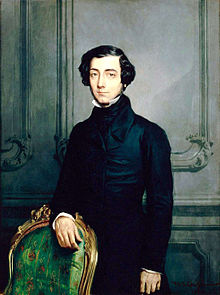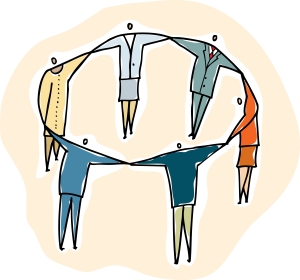“Self-interest rightly understood.”
Without doubt, everyone has their own self-interest. But rightly understood? This makes quite contrast. Alexis de Tocqueville observed that Americans voluntarily join together in associations to further the interests of the group and, thereby, eventually to serve their own interests. Putting common self-interest becomes essential condition before attaining self-interest. Turns out taking care of other isn’t only a good for soul but also for economy.

Alexis de Tocqueville
In the beginning of history, the concept of “self-interest rightly understood” is one of many motivating forces behind democracy, transforming United States into a strong economy power country. What about now? America is still the richest but it’s also the most unequal nation. What does it mean? The economic growth has not been fairly shared and the gap between rich and poor become wider. In a nutshell, the rich get richer and the poor get poorer, with higher presentation goes to, of course, the poor. Does it happen only in America or other rich countries? No, it happens across the globe. In developing countries, as stated in UNDP report (2015), a significant majority of households in developing countries—more than 75 percent of the population—are living today in societies where income is more unequally distributed than it was in the 1990s with the income inequality rate increasing 11 percent in only 10 years.

